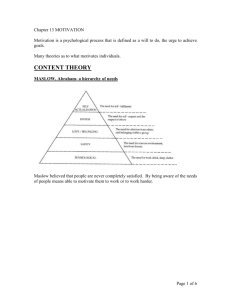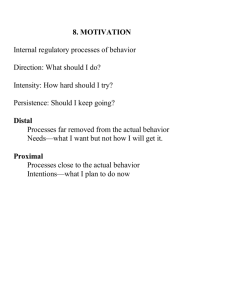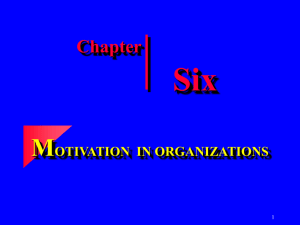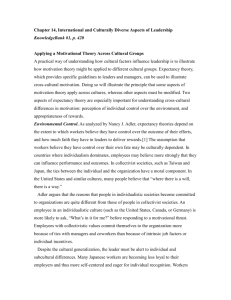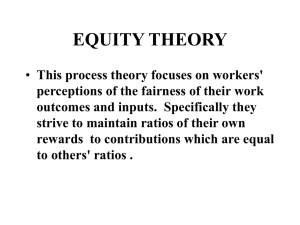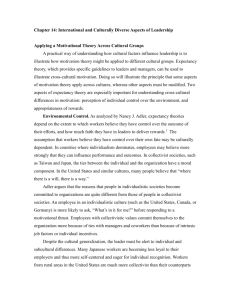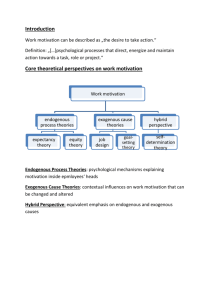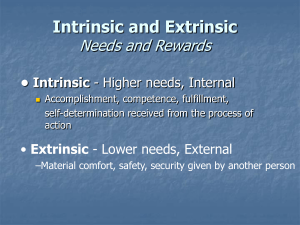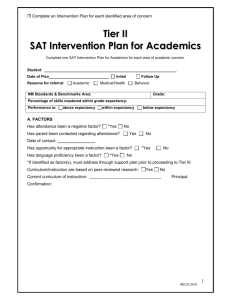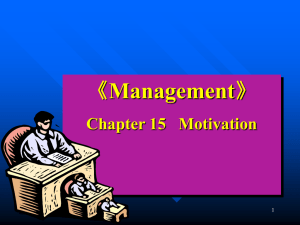Process Theories of Motivation
advertisement
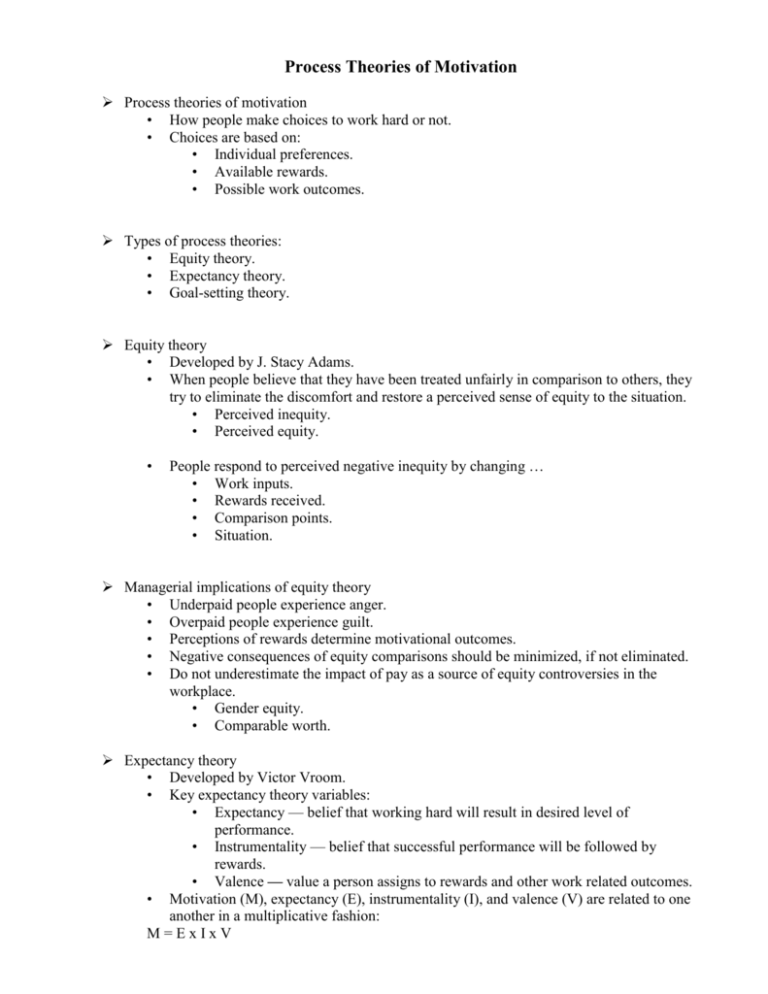
Process Theories of Motivation Process theories of motivation • How people make choices to work hard or not. • Choices are based on: • Individual preferences. • Available rewards. • Possible work outcomes. Types of process theories: • Equity theory. • Expectancy theory. • Goal-setting theory. Equity theory • Developed by J. Stacy Adams. • When people believe that they have been treated unfairly in comparison to others, they try to eliminate the discomfort and restore a perceived sense of equity to the situation. • Perceived inequity. • Perceived equity. • People respond to perceived negative inequity by changing … • Work inputs. • Rewards received. • Comparison points. • Situation. Managerial implications of equity theory • Underpaid people experience anger. • Overpaid people experience guilt. • Perceptions of rewards determine motivational outcomes. • Negative consequences of equity comparisons should be minimized, if not eliminated. • Do not underestimate the impact of pay as a source of equity controversies in the workplace. • Gender equity. • Comparable worth. Expectancy theory • Developed by Victor Vroom. • Key expectancy theory variables: • Expectancy — belief that working hard will result in desired level of performance. • Instrumentality — belief that successful performance will be followed by rewards. • Valence — value a person assigns to rewards and other work related outcomes. • Motivation (M), expectancy (E), instrumentality (I), and valence (V) are related to one another in a multiplicative fashion: M=ExIxV • If either E, I, or V is low, motivation will be low. • Managerial implications of expectancy theory— To maximize expectancy, managers should: • Select workers with ability. • Train workers to use ability. • Support work efforts. • Clarify performance goals. • Managerial implications of expectancy theory To maximize instrumentality, managers should: • Clarify psychological contracts. • Communicate performance-outcome possibilities. • Identify rewards that are contingent on performance. • Managerial implications of expectancy theory— To maximize valence in a positive direction, managers should: • Identify individual needs. • Adjust rewards to match individual needs. • Managerial implications of expectancy theory— To maximize valence in a positive direction, managers should: • Identify individual needs. • Adjust rewards to match individual needs. • Managerial implications of expectancy theory— To maximize valence in a positive direction, managers should: • Identify individual needs. • Adjust rewards to match individual needs. • Goal-setting theory Participation in goal setting … • Unlocks the motivational potential of goal setting. • Management by objectives (MBO) promotes participation. • When participation is not possible, workers will respond positively if supervisory trust and support exist.

